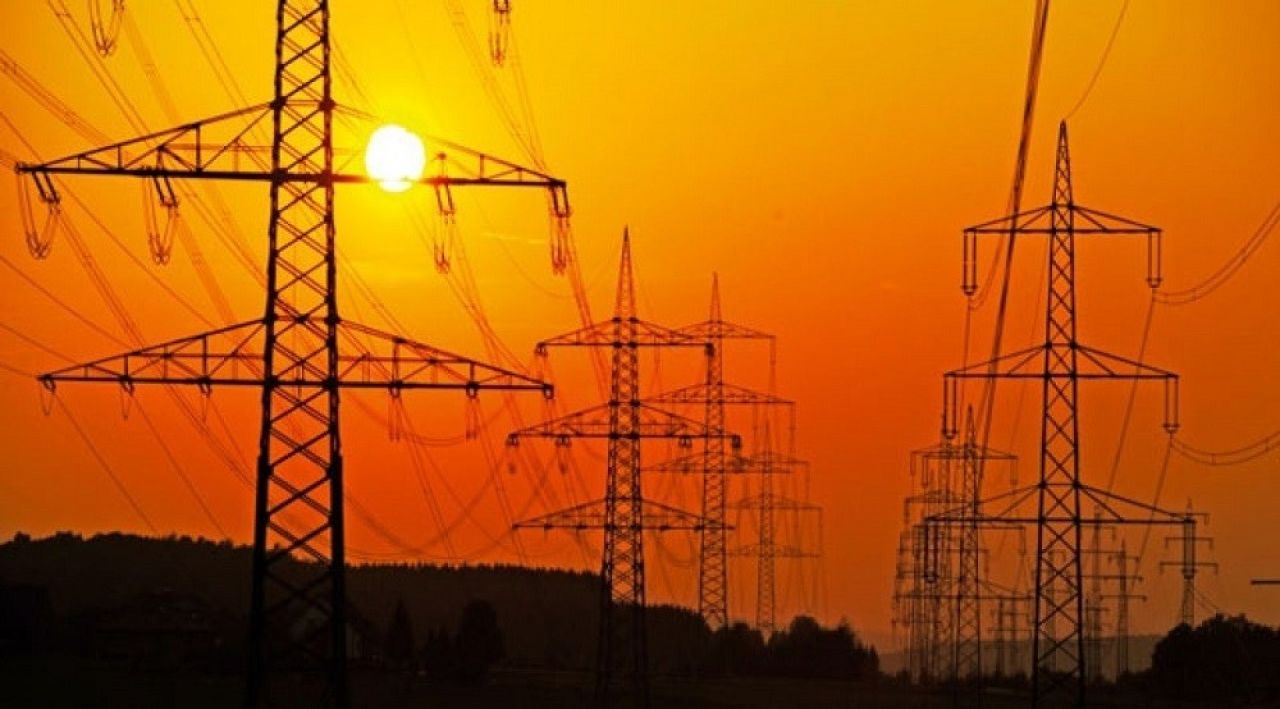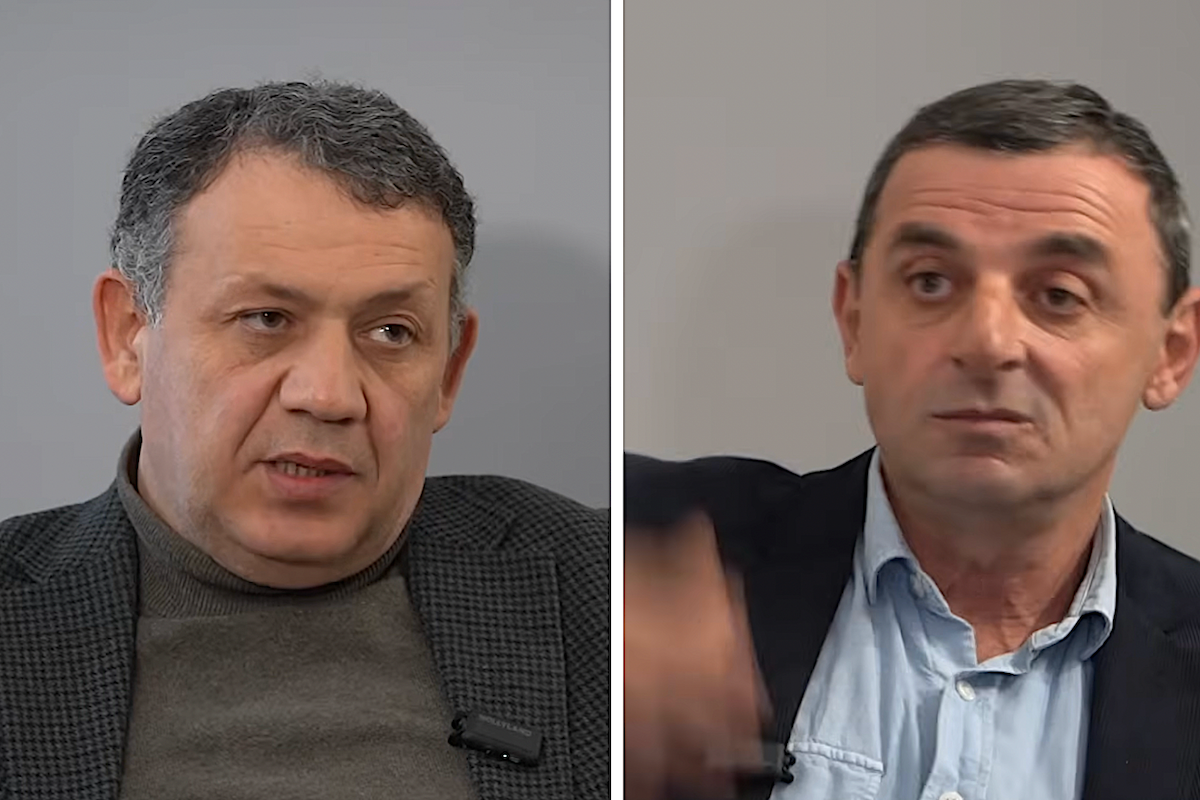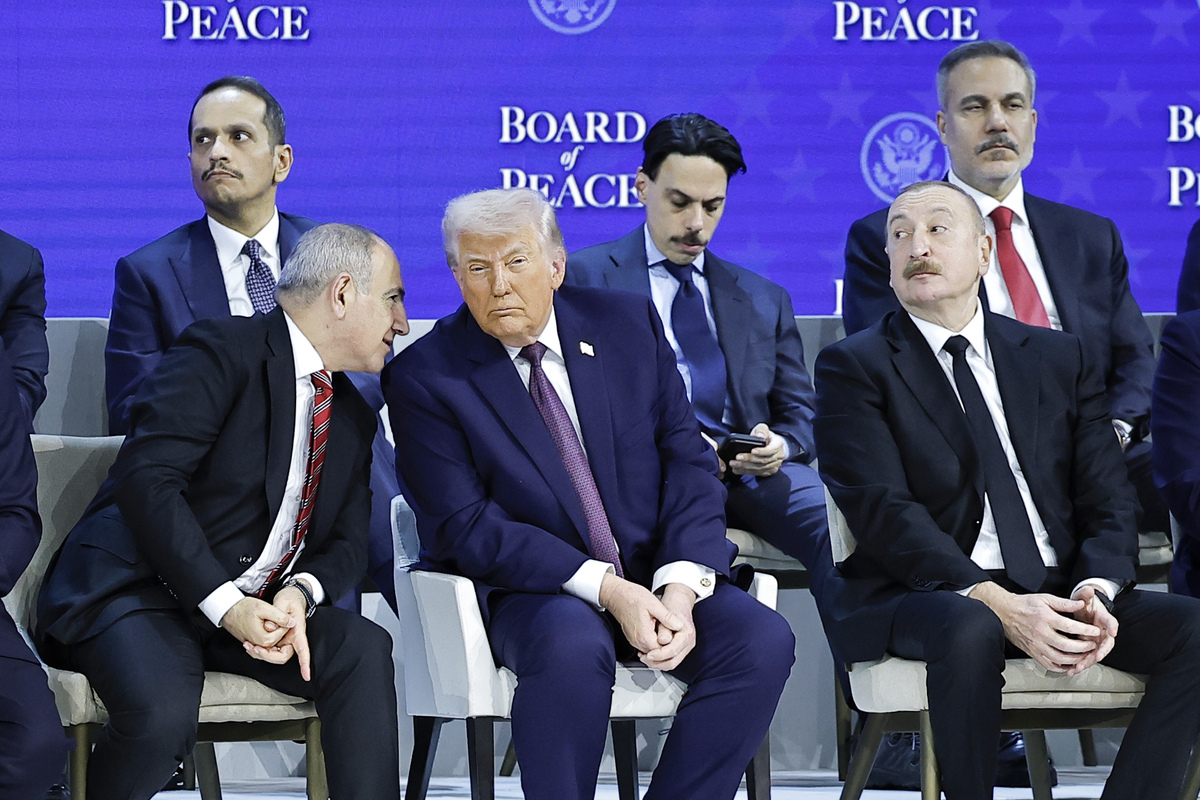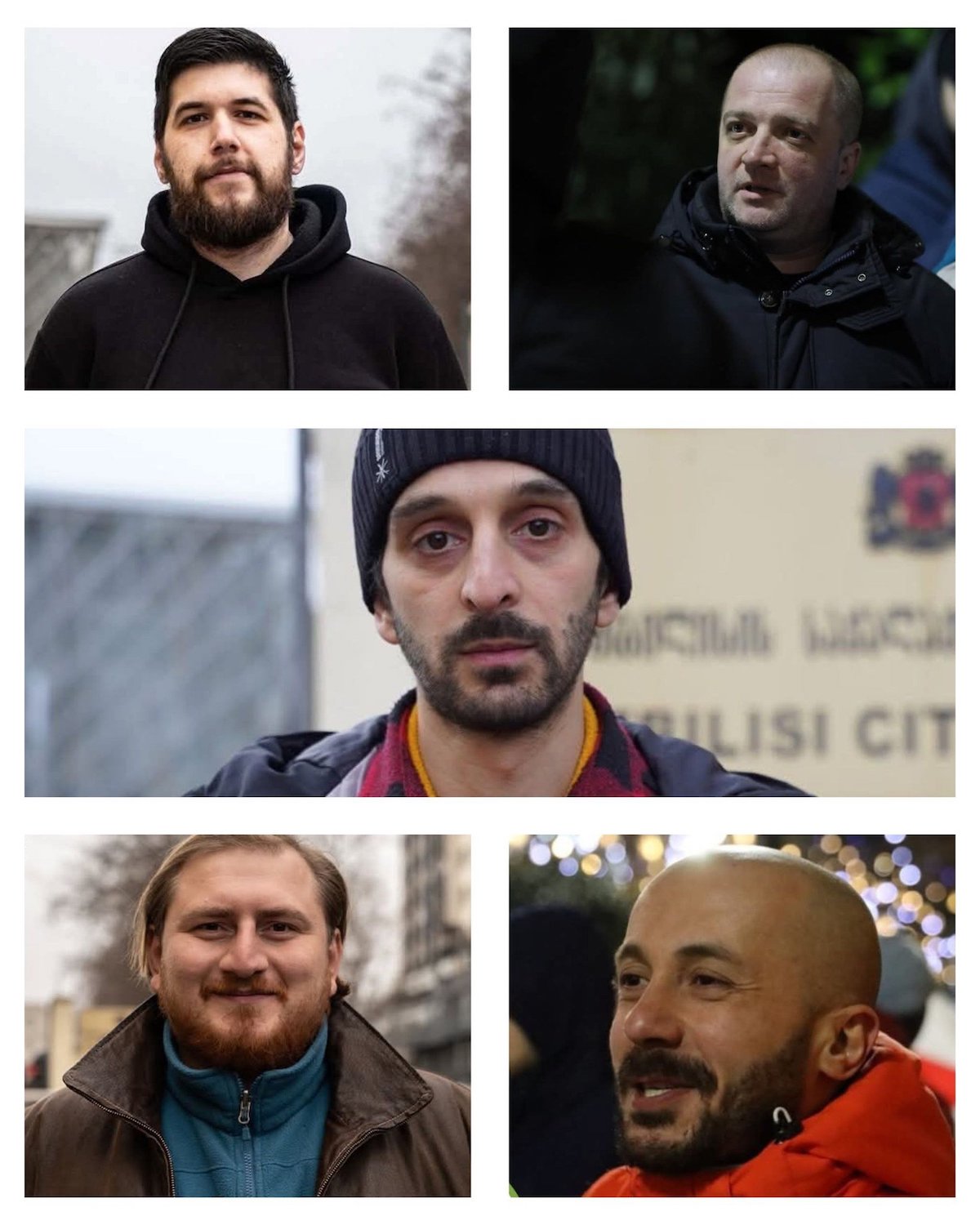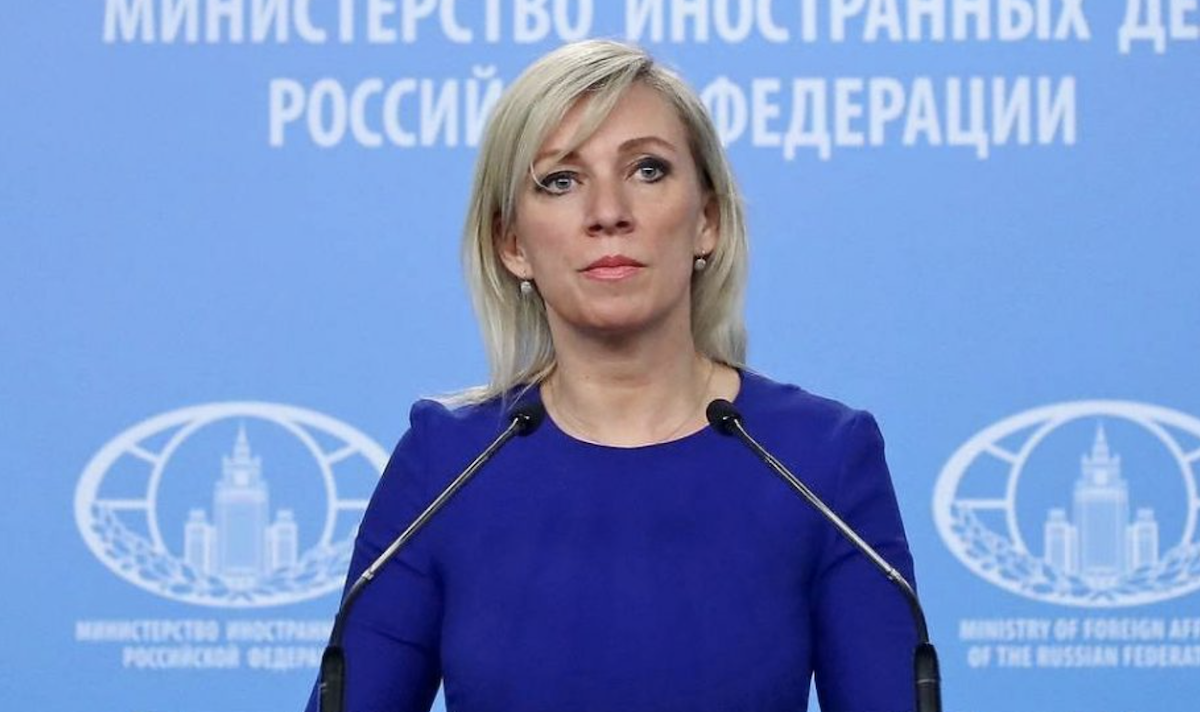Will Armenia and Azerbaijan sign a peace treaty despite disagreements?
Armenian-Azerbaijani peace agreement
A possible signing, or at least the beginning of negotiations and discussion of the principles of a peace agreement between Armenia and Azerbaijan, is being actively discussed in Yerevan and Baku. Baku has published 5 points that should be contained in the document on establishing relations between the countries. Both before and after receiving the proposals from the Azerbaijani side, the Armenian Foreign Ministry announced its intention to conduct these negotiations through the mediation of the co-chairs of the OSCE Minsk Group.
Co-chairs of the OSCE Minsk Group are the United States, France and Russia. Within the framework of the co-chairmanship of the Minsk Group, negotiations were held around the settlement of the Karabakh conflict before the 2020 war. After the end of hostilities, the President of Azerbaijan stated that the Karabakh issue had been settled and the need for the activities of the Minsk Group had disappeared. Negotiations at the level of the heads of Armenia and Azerbaijan within the framework of the Minsk Group were no longer held, the mediators did not have the opportunity to visit Nagorno-Karabakh. Now Yerevan is offering mediation to the Minsk Group on the issue of signing the Armenia-Azerbaijan peace agreement.
Talks about signing a peace treaty are taking place against the backdrop of an extremely tense situation in Nagorno-Karabakh and continued tensions at the Armenian-Azerbaijani border. This is regarded in Armenia as an additional factor of pressure from the Azerbaijani side. The Armenian Foreign Minister has already stated that the points presented by Baku “do not fully reflect the entire agenda of existing problems”.
- Azerbaijan’s new military operation in Nagorno-Karabakh? Analysis from Armenia
- “Coercion to fulfil conditions of tripartite statement” – experts from Baku discuss situation in Karabakh
- Armenian-Azerbaijani escalation: reports from both sides
Statements by the Ministries of Foreign Affairs of Armenia and Azerbaijan
On March 11, the Armenian Foreign Ministry confirmed its readiness to start the process of signing a peace treaty with Azerbaijan. The same statement said that in the near future, Armenia intends to appeal to the co-chairs of the OSCE Minsk Group with a request to initiate peace talks with Azerbaijan. This was explained by the fact that the signing of the agreement should be preceded by a negotiation process, meanwhile, “the two countries do not have rich experience in direct negotiations”.
In response, on March 14, Baku published 5 basic principles that, in the opinion of the Azerbaijani side, the parties must adhere to in order to establish relations:
- mutual recognition by states of sovereignty, territorial integrity, inviolability of state borders and each other’s political independence;
- mutual confirmation by states of the absence of territorial claims against each other and their acceptance of a legal obligation not to make such claims in the future;
- refrain from threatening each other’s security in international relations, using threats and force against political independence and territorial integrity, as well as other circumstances that are not consistent with the purposes of the UN Charter;
- delimitation and demarcation of the state border, establishment of diplomatic relations;
- opening transport links and communications, establishing other relevant communications and cooperation in other areas of mutual interest.
After Azerbaijan presented its vision, the Armenian Foreign Ministry issued a statement as follows:
“The Republic of Armenia responded to the proposals of the Republic of Azerbaijan and appealed to the OSCE Minsk Group Co-Chairmanship with a request to organize negotiations on the conclusion of a peace treaty between the Republic of Armenia and the Republic of Azerbaijan on the basis of the UN Charter, the International Covenant on Civil and Political Rights and the Helsinki Final Act”.
Official Yerevan did not divulge other details. There is no clarification on the issue whether the Armenian side accepted or rejected Baku’s proposal.
Reports
from Yerevan
The intensification of discussions around the signing of a peace agreement with Azerbaijan takes place against the backdrop of an emergency situation in Nagorno-Karabakh, where a gas pipeline has been damaged and the civilian population is on the verge of a humanitarian catastrophe. The Armenian side reports that a section of the pipeline has been damaged in the area which has returned under the control of Azerbaijan after the end of the second Karabakh war. For more than a week, the Azerbaijani side has not allowed access to the accident side and for the restoration works to be carried out. Meanwhile, in cold NK, the population cannot heat their houses with gas and bakeries cannot work.
In this regard, the Armenian side is carrying out negotiating through Russian peacekeepers. In addition, the Armenian authorities are in contact with international partners.
Meetings were held at the Armenian Foreign Ministry with the heads of diplomatic missions accredited in Armenia and representatives of international organizations, “foreign diplomats were informed about Azerbaijan’s actions aimed at creating a humanitarian crisis in Artsakh”.
The Prime Minister of Armenia presented the situation to the EU Special Representative for the South Caucasus, who is currently in Yerevan on a visit. Toivo Klaar wrote on his Twitter page that he arrived in the region due to the fact that “the international situation has become more tense”, and in this situation, the EU is more than ever committed to establishing peace in the South Caucasus.
Nikol Pashinyan spoke about the escalation around Nagorno-Karabakh and in the whole region with US Secretary of State Anthony Blinken. In a telephone conversation, according to the press service of the government, the parties discussed the following points:
- the importance of maintaining stability and peace in the region,
- the need for a comprehensive settlement of the Nagorno-Karabakh conflict within the framework of the OSCE Minsk Group co-chairmanship, which will also contribute to the establishment of peace between Armenia and Azerbaijan.
Nikol Pashinyan had a similar conversation with Canadian Prime Minister Justin Trudeau.
“Negotiations should be held without preconditions”
Armenian Foreign Minister Ararat Mirzoyan commented on the situation around the signing of an agreement with Azerbaijan. He stressed that negotiations should be held without preconditions.
“As for the proposals themselves, both countries, in essence, back on December 8, 1991, having jointly signed the “Agreement on the Establishment of the Commonwealth of Independent States”, have already mutually recognized their territorial integrity, and that they have no territorial claims to each other.
It should also be noted that the points indicated in the proposal do not fully reflect the entire agenda of existing problems. For the Armenian side, the clear guarantee of the rights and freedoms of the Armenians of Artsakh, as well as the final clarification of the status of Nagorno-Karabakh, is fundamental. For us, the Nagorno-Karabakh conflict is not a territorial issue, but a matter of rights”.
Speaking about Azerbaijan’s proposals regarding the process of delimitation and demarcation of borders between the two countries and unblocking communications in the region, the minister stressed that:
- Armenia is consistent in the implementation of the trilateral agreements signed by Prime Minister Pashinyan and the Presidents of Russia and Azerbaijan,
- the country came up with comprehensive proposals for their implementation, in particular, it is a mirror withdrawal of troops on the border of the two countries and the introduction of an international monitoring mechanism, which the Azerbaijani side rejected.
“Armenia never had territorial claims”
As for the issue of recognition of territorial integrity, which is one of the points of Azerbaijan’s proposals, it is perceived in Armenian society as a denial of the right to self-determination of Armenians living in Nagorno-Karabakh. In this regard, the chairman of the parliamentary commission on foreign relations, Eduard Aghajanyan, stated that Armenia has never had territorial claims:
“We are talking about the safe living of the people of Nagorno-Karabakh in their homeland, the whole context of the negotiations since the 90s was just like that”.
When asked by Radio Azatutyun (Freedom), whether this can be achieved within Azerbaijan, the politician replied:
“I think this process should be discussed and a final status should be reached within the framework of the final conclusion of a peace agreement between Armenia and Azerbaijan”.
Commentary from Yerevan
Political scientist Benyamin Poghosyan says:
“If you take the Minsk Group, as far as I understand, it was in an ‘intensive care’ after November 10, 2020, and now, after an open confrontation between the West and Russia, the Minsk Group is probably already in the morgue. So I have a hard time imagining what to expect from it.
Even before the war on the territory of Ukraine (and this is still not a Russian-Ukrainian war, but a war between Russia and the West, the hot phase of which takes place on the territory of Ukrain), even before this war, MG was in intensive care. Because everyone understood that the proposals that the Minsk Group formed in 2007 (the Madrid principles, the Kazan document, etc., etc.) are no longer relevant after the 2020 war. And there were no attempts to form new proposals. And now, when there is a war between Russia and the West, I have big doubts that MG can do anything.
I cannot speak on behalf of the Armenian government, this is a useless task, but I have the impression that the Armenian government is ready, at least psychologically ready to recognize NK as part of Azerbaijan and fight for the rights of ethnic Armenians, citizens of Azerbaijan”.
Meanwhile, political observer Hakob Badalyan believes that the appeal to the OSCE Minsk Group is “an interesting and important initiative”:
“In fact, this initiative gives MG a chance to get in the game. After the war, Azerbaijan began to declare that there was no Artsakh issue, it resolved it. Everyone understands that it does not exist only for Azerbaijan – and then in quotation marks. Aliyev is well aware that he exists. He knows that he has not solved the problem, and it is impossible to constantly close it from his society on the euphoria of winning the NK. Therefore, the activation of the Minsk Group can be effective for Armenia. Let’s see how the co-chairs will react to this.
The fact is that we give the opportunity to activate the Minsk Group in a direction that deprives Azerbaijan of the argument of refusal. Azerbaijan says that it has solved the Artsakh issue for itself, but here it is proposed to discuss a peace agreement. And we understand that when the negotiation process begins, the Karabakh issue will inevitably be discussed. Therefore, there is a possibility of a diplomatic game that Yerevan can start, given Baku’s refusal to discuss it. So it can approach this process while saving face.
That is, the negotiation process is starting, it is said that this is not connected with the Karabakh settlement, it concerns the peace agreement. In other words, this can become the basis of the diplomatic process, and this is very important in terms of the security and stability that we need”.
Reports from Baku
“Minister of Foreign Affairs Jeyhun Bayramov, during his speech at a diplomatic forum in Antalya, spoke about Azerbaijan’s peacekeeping efforts at the post-conflict stage. It was noted that, despite the steps taken by the country towards the normalization of relations between Azerbaijan and Armenia, “statements at the highest level about our readiness to sign a peace treaty with Armenia, over the past period, no response was given from Armenia the head of the Department of the Press Service of the Ministry of Foreign Affairs of Azerbaijan Leyla Abdullayeva.
“As previously reported, as a next step, a few days ago, Azerbaijan presented Armenia with a proposal on the basic principles for establishing relations between the two states. […] I would like to note that it is on these basic principles that two states, after intensive, substantive and result-oriented negotiations, can conclude a bilateral peace agreement”, she noted.
Commentary from Baku
“Armenia’s statement about it wanting to continue negotiations with Azerbaijan to conclude a peace treaty within the OSCE Minsk Group means Yerevan’s de facto rejection of a constructive dialogue with Baku,” said former Azerbaijani Foreign Minister Tofig Zulfugarov.
“According to the status, the OSCE Minsk Group is the working body of the Minsk Conference, which was called upon to determine the status of Nagorno-Karabakh. That is, in fact, Armenia wants to consider the issue in the context of the need to determine the status of Nagorno-Karabakh”, the diplomat stressed.
According to Zulfugarov, this means an actual refusal on the part of Armenia from negotiations with Azerbaijan.
“Therefore, in this case, it seems to me, the Azerbaijani position should be more developed. Especially in the context of the fact that if one of the parties to the conflict believes that the conflict still needs to be resolved, this, first of all, concerns the territory on which Armenia actually expresses territorial claims through its actions, then Azerbaijan should reserve the right to express territorial claims regarding territory of Armenia. This is a very strong argument in favor of our position. I think it would be right if our position includes this aspect as well”, the ex-minister noted.
Zulfugarov stressed that in this context it is clear that Yerevan will continue to pursue a policy of territorial claims against Azerbaijan.
“And if such a policy continues, then why should we refuse to put forward de facto counter territorial claims against Zangezur? Here are my first impressions of what’s going on.
I have no doubt that Azerbaijan will not agree to the resumption of negotiations within the framework of the Minsk Group. Azerbaijani President Ilham Aliyev unequivocally said that the status has been determined. There is no status. Consequently, Armenia again puts forward territorial claims against Azerbaijan. And under these conditions, it is necessary that we respond to them with the same coin as they do”, said the ex-Foreign Minister of Azerbaijan.
Zulfugarov noted that the current situation in Ukraine would weaken Russia’s position in the South Caucasus, and the Kremlin could withdraw its armed forces from both Azerbaijan and Armenia.










